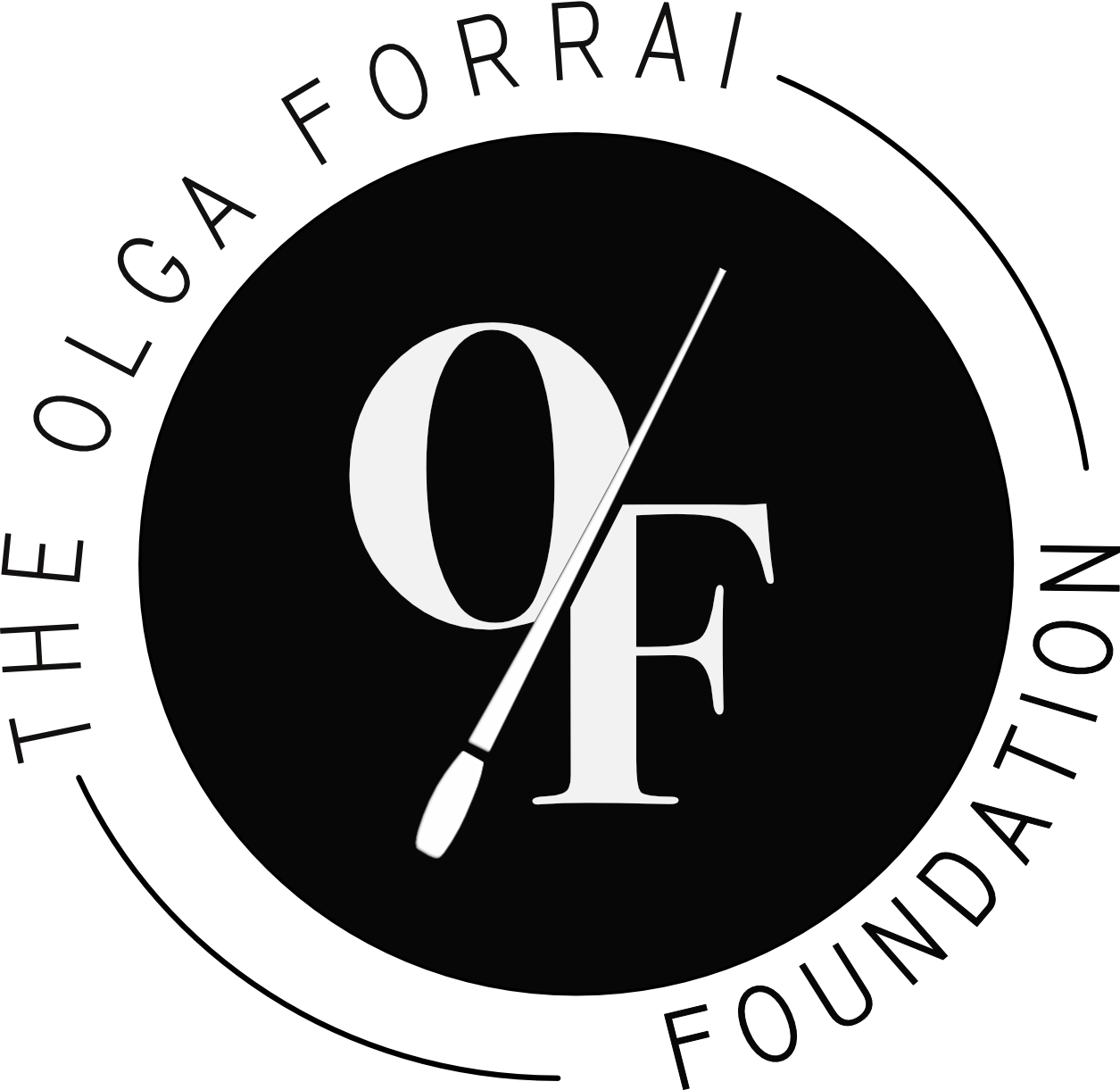Olga Forrai's career spanned the Golden Era of operatic singing in the first half of the 20th century. A contemporary of such celebrated artists as Frances Alda, Emmy Destinn, Geraldine Farrar, Mary Garden, Maria Jeritza, Zinka Milanov, Claudia Muzio, Elisabeth Rethberg, and Maria Callas, Olga Forrai distinguished herself with a voice of great size and beauty, an impressive vocal range and color and a commitment to dramatic interpretation. Her repertoire encompassed the operatic heroines of Bizet, Leoncavallo, Mascagni, Mozart, Verdi, and Wagner and contemporary composers of the time, including Béla Bartók, Eugene D'Albert, Franz Schreker, and Richard Strauss. The list of conductors with whom she collaborated throughout her career is no less impressive, including, but not limited to, Peter Herbert Adler, Pierre Monteux, Fritz Reiner, William Steinberg, George Szell, Bruno Walter, and Alexander von Zemlinsky.
Olga Forrai was born in Budapest, Hungary, on February 24, 1899, where she also began her early musical training. She later came to study with the famous tenor, Fernando Carpi, who sang at the Metropolitan Opera from 1916-1918 and whose pupils would include Zinka Milanov, Ernst Haefliger, and Dame Gwyneth Jones. In 1917 the Zürich Opera engaged the young 18-year-old Olga Forrai for the first of many seasons. Her repertoire included the title roles of Carmen, Mignon, Aïda, and Der Rosenkavalier, among other assignments. A guest appearance at the Zürich Festival as Marguerite in Berlioz's La Damnation de Faust under the baton of Bruno Walter led to debuts in Berlin and Frankfurt upon his recommendation.
Olga Forrai's first season with the Neues Deutsches Theater in Prague (later the Prague State Opera) was in 1922, where she quickly established herself as a leading soprano with the company which was under the direction of Alexander von Zemlinsky. In addition to her operatic assignments, Forrai premiered the Sieben Lieder mit Klavier (Seven Songs for Piano 1923, since lost) by Viktor Ullmann, his first concert as a composer.
A frequent collaborator in contemporary works, Olga Forrai's association with the International Society of Contemporary Music caught conductors and critics attention, paving the way for her debut in America. In Chicago, the Civic Opera Company (precursor to Lyric Opera of Chicago) engaged her in 1925 for Elisabeth in Tannhäuser, Nedda in Pagliacci, and Octavian in Der Rosenkavalier. The following season of 1926 saw her debut at the Cincinnati Opera in the world premiere of Ralph Lyford's Castle Agrazant.
Her career continued to flourish on both sides of the Atlantic, and in 1930 she appeared in Paris singing Schwertleite in Die Walküre in a Ring Cycle conducted by Franz von Hoesslin, a leading interpreter of Wagner's works throughout the 1920s and 1930s. Operatic engagements, recitals, lectures, and guest performances, along with her pedagogical gifts, continued to take her to London, New York, Vienna, and of course, Prague and other music capitals in Europe and America throughout her career. Additional notable roles in her repertoire included Marta in Tiefland (requested explicitly by the composer Eugene D'Albert) and Salome with noted Strauss specialist George Szell. In 1949 she sang in what is considered the American premiere of Béla Bartók's Bluebeard's Castle with the Dallas Symphony and broadcast live on NBC's "Radio Orchestras of the Nation" program.
Olga Forrai was married to Dr. Frank Demant, and they made their primary residence in Prague. Their home was continuously a gathering center for musicians and composers. Thanks to the generosity of her estate, The Olga Forrai Foundation can nurture new generations of emerging dramatic voices and classical music conductors with much-needed financial assistance.

